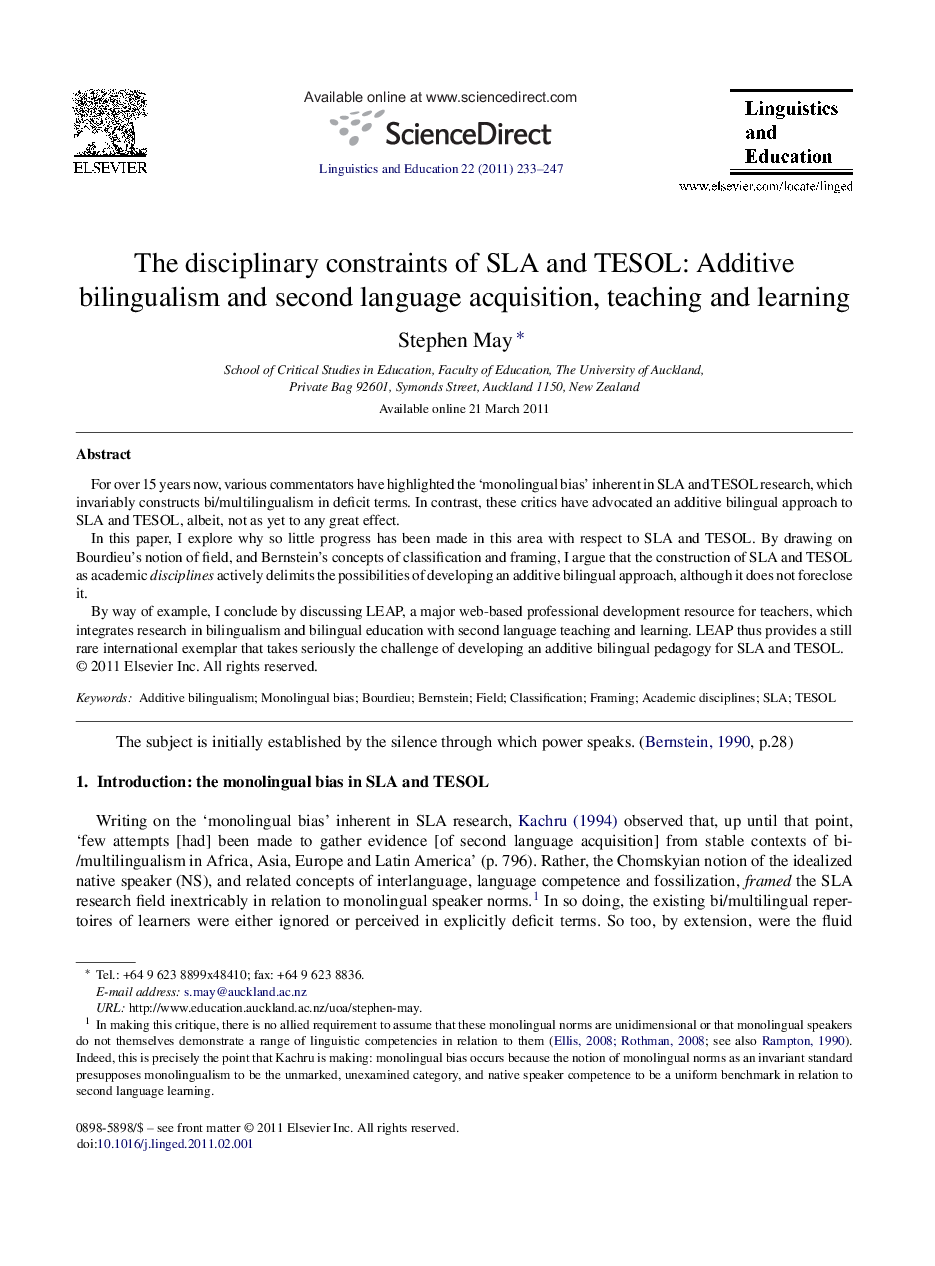| Article ID | Journal | Published Year | Pages | File Type |
|---|---|---|---|---|
| 366186 | Linguistics and Education | 2011 | 15 Pages |
For over 15 years now, various commentators have highlighted the ‘monolingual bias’ inherent in SLA and TESOL research, which invariably constructs bi/multilingualism in deficit terms. In contrast, these critics have advocated an additive bilingual approach to SLA and TESOL, albeit, not as yet to any great effect.In this paper, I explore why so little progress has been made in this area with respect to SLA and TESOL. By drawing on Bourdieu's notion of field, and Bernstein's concepts of classification and framing, I argue that the construction of SLA and TESOL as academic disciplines actively delimits the possibilities of developing an additive bilingual approach, although it does not foreclose it.By way of example, I conclude by discussing LEAP, a major web-based professional development resource for teachers, which integrates research in bilingualism and bilingual education with second language teaching and learning. LEAP thus provides a still rare international exemplar that takes seriously the challenge of developing an additive bilingual pedagogy for SLA and TESOL.
Research highlights► This paper updates discussion of the ‘monolingual bias’ in SLA and TESOL. ► It argues that its persistence is the result of existing disciplinary conventions. ► Fostering an additive bilingual approach involves rethinking these conventions. ► Key theoretical concepts include field and habitus, and classification and framing. ► Discusses a new SLA/TESOL web resource that adopts an additive bilingual approach.
